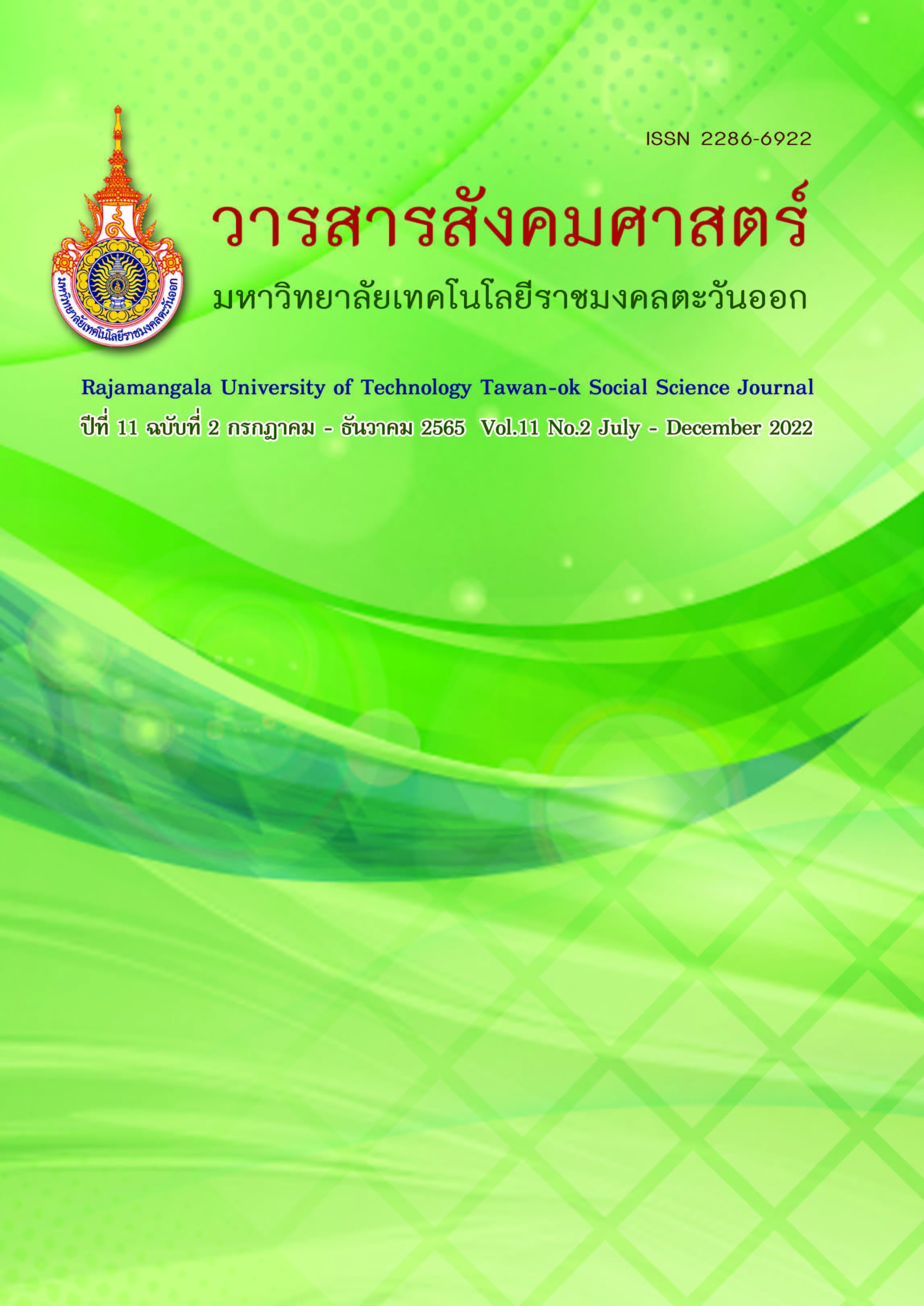The Thinking Skills Development by P4C in Sociology of Conflict Course
Main Article Content
Abstract
This article is based on classroom research that aimed at the development of thinking skills using P4C in Sociology of conflict course. The objectives of the study consisted of two parts, which were to study the processes and outcomes for the development of four areas of thinking skills consist of critical thinking, creative thinking, collaborative thinking, and caring thinking. This study used a qualitative research methodology. The target groups and key informants are third year students in the field of Sociology and Anthropology, Prince of Songkla university, Pattani campus who registered for this course in Semester 1/2021, 26 students. The research tools include student reflection worksheets, student self-assessment form, activity assessment form, and the activities participation observation form. The study results found that the contents and activities design process is appropriate. The thinking skills development results was found that the students developed more skills in each area especially collaborative and caring thinking skills. while critical and creative thinking skills are rare. In addition, the study also found that students also develop assertiveness and listening skills. And most importantly, students also have the confidence to apply what they have learned in their lives and work in the future.
Article Details

This work is licensed under a Creative Commons Attribution-NonCommercial-NoDerivatives 4.0 International License.
References
จริยา นวลนิรันดร์. 2557. การพัฒนาทักษะทางปัญญาด้วยกิจกรรมชุมชนแห่งการสืบสอบเชิงปรัชญา: การศึกษาในนักศึกษาชั้นปีที่ 2 คณะมนุษยศาสตร์และ ประยุกต์ศิลป์ มหาวิทยาลัยหอการค้าไทย. วารสารสมาคมปรัชญาและศาสนาแห่งประเทศไทย 9 (2) : 110-131
ณฐิกา ครองยุทธ. 2560. ประเด็นทางญาณวิทยาในแนวคิดเรื่องชุมชนแห่งการสืบเสาะของแมทธิว ลิปแมน. วิทยานิพนธ์ปริญญาหลักสูตรครุศาสตรดุษฎีบัณฑิต.
จุฬาลงกรณ์มหาวิทยาลัย.
ฐากร สิทธิโชค. 2558. การคิดอย่างมีวิจารณาญาณในกระบวนการเรียนรู้สังคมศึกษา. วารสารมนุษยศาสตร์และสังคมศาสตร์ มหาวิทยาลัยทักษิณ. 9 (2) : 87-
เพ็ญพิศุทธิ์ ใจสนิท. 2561. การพัฒนาคุณลักษณะบัณฑิตตามอัตลักษณ์ของมหาวิทยาลัยราชภัฏเชียงรายโดยใช้การเรียนการสอนแบบกระบวนการสืบสอบและ
แสวงหาความรู้เป็นกลุ่ม. วารสารสังคมศาสตร์วิชาการ. 11 (1) : 63-70.
วีรยุทธ เกิดในมงคล. 2564. ปรัชญาสำหรับเด็ก : ความเป็นมา นิยาม จุดมุ่งหมาย และวิธีการ. สิบค้นจาก https://sites.google.com/view/thai-p4c. วันที่ 25
มิถุนายน 2564.
วิภาพรรณ พินลา. 2560. แนวทางการจัดการเรียนรู้วิชาสังคมศึกษา เพื่อพัฒนาทักษะการคิดอย่างมีวิจารณญาณสำหรับผู้เรียนในศตวรรษที่ 21. วารสารปาริชาต
(1) : 13-34
ศุจิกา ศรีนันทกุล. 2551. ผลของการเรียนแบบสืบสอบเชิงปรัชญาบนเว็บบล็อกที่มีต่อการคิดไตร่ตรองของนักเรียนชั้นมัธยมศึกษา ปีที่ 4. วิทยานิพนธ์ปริญญา
หลักสูตรครุศาสตรดุษฎีบัณฑิต. จุฬาลงกรณ์มหาวิทยาลัย.
สิริเพ็ญ พิริยจิตรกรกิจ. 2549. ปรัชญาสำหรับเยาวชนกับการสอนปรัชญาใน ฐานะวิชาศึกษาทั่วไป. ใน ชัชชัย คุ้มทวีพร และคณะ. (บรรณาธิการ), ปรัชญาใน
สังคมไทย. กรุงเทพฯ: บริษัทนำทองการพิมพ์.
Baden Eunson. 2007. Conflict management. Australia: John Wiley & Sons.
Lipman, M. 2003. Thinking in education. Cambridge: Cambridge University Press.
Lipman, M. 2007. Education for critical thinking. In R. R. Curren (Ed.), Philosophy of education: an anthology. New York: Blackwell.


